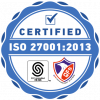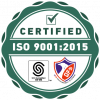Damien: Hi, everyone Damien here from Affordable Staff, and welcome to live with Affordable Staff. Today we got a special guest with us, Jordan. So, Jordan, tell us a little bit about where you’re from and what you do.
Jordan: Thanks, Damien. It’s great to be joining you today. I’m from Milan Industries and we’re an IT company based in Melbourne and service clients across the east coast all the way down to Hobart and up to Queensland. We provide services from managed IT services, VOIP, Internet, hosting, and a range of other services.
Damien: So Jordan and I were I suppose having a chat the other day because COVID has been something or 2020 has been one of those years where everything’s changed for every business right across Australia and New Zealand. With more and more people working from home, so I suppose there’s been a lot of different trends in 2020 that I think at the end of 2019 we didn’t even think would happen or they’re a few years off. What are you seeing in your world?
Jordan: Yeah, look. You’re spot on, I think 2020 started off absolutely flying, it was really positive and a lot of activity, and then along came COVID and all of a sudden we found ourselves in a situation where everything that we had previously done and worked, was no longer possible. We couldn’t do things like our lunch and learn events, for example. We couldn’t do all the typical sorts of networking and all those sort of things. So we quickly had to change the way we connected with our clients and the way our clients connected with their clients, we had to support them in finding new solutions. So what we’re doing today, a video call such as this for example, became the new normal. So that was definitely a big piece of you know, of helping clients through that through whether it be a full unified communications platform or something as simple as Zoom. So that was definitely that, and then also you know, there’s the added complications around security and everything else that came through COVID as well, from working remote as well.
Damien: So I suppose I want to drill down on a few things, we’ve seen Australia, New Zealand-wide, people working from home or remotely now more so than ever before. From an IT perspective, what challenges has that posed for business owners around connecting with clients because you mentioned connecting with clients, you’ve mentioned security, so I suppose they’re the two big ones that come to mind for me. What are the challenges or what do business owners need to do to make sure that 2021 where I can’t see this changing, I think you know, Zoom, and these video conference calls and the way we do business has changed Australia-wide. What do business owners need to do to make sure that they protect their business?
Jordan: Yeah. Look, that’s a really good question and there’s a range of different things you need to do. I think there’s, we’ve seen you know, security is definitely a critical part of it, but also the people aspect and we’re seeing you know, still, it’s a challenge working from home. Today actually we’ve got myself and one other person in the office and he joined our business in April I believe it was. And today’s the first time I’ve met him face to face so you know so that disconnect is real. So we’ve internally implemented a lot of I guess just different initiatives, you know, things like we’ll have an open meeting on the Microsoft Teams platform that’s open all day where people can just jump in and out of and keep that as a comms channel so those sort of watercolor conversations, so to speak, can occur easily. That’s definitely one thing we’ve lost a lot of. From a security perspective, it’s being such, it’s simple as muti-factor authentication, now whether that be on your Microsoft or Google email account, or the VPN that you’re using to access the network, you know, that’s something that we definitely would be recommending and looking at. And then it’s even, you know, we’ll be calling through to businesses that people, you know, clients referred on to us and we often hear, ‘Oh sorry I’m working from home, and they’re working from home and I can’t transfer you through’ you know, that’s a real challenge that a lot of people are facing. And then on top of that is that whole phase where ‘we’re in the office together, we knew what was going on’ you know, that business intelligence phase, you know you could ask somebody what they’ve done for the day. So there’s a lot of that data and reporting that’s gone you know, and missing from a lot of businesses that you know, is what we’ve been doing a lot of as well in terms of helping businesses implement that into their daily operations.
Damien: And I know you touched on you called that unified communications, but being able to pick up the phone, call businesses as usual, and I suppose for Victoria right now, it’s mid-November, you’ve just been allowed to start to go back to offices after an extended period of lockdown. But communicating is something that we face in the outsourcing world all the time with the team based in the Philippines and hooking them and plugging them into the Australian business but it seems to have been a real challenge for a lot of businesses to be able to you know, do business as usual and I suppose, get up and running as quickly as possible during COVID, but even now post-COVID there’s still a lot of businesses if you pick up the phone and hang on and get them to ring you back on their mobile they’re working from home. So are there solutions out there? Or are the solutions easy to implement?
Jordan: They are easy to implement and I guess there’s a few challenges. So one is that experience with their one employee but to the client of not being able to transfer people through. The other is if what we’ve found is, some staff have started calling back from their personal mobile phone and then that creates a risk of clients don’t have their personal mobile phones, so one is a risk of the business when that person leaves. They got potential client data on their personal phone but also their own work-life balance. I know they’ll be getting calls in their personal phone so it is pretty easy, it is a simple process in terms of the way that we would implement it. We also have a team in Manila as well, or in the Philippines, and so for you know, quarterly we would always conduct our disaster recovery plans and would just you know, at the drop of the hat, realize the team that we’re in a disaster recovery situation and would have to work remotely. So whether that’s the main line coming into the business or whatever it might be, we’ve ensured that we’re doing what we’ve preached and we’ve got a fully mobile workforce. Even businesses that still don’t have those solutions in place it’s definitely something we can, not just daft, but it’s definitely something that’s pretty easy to get set up.
Damien: And I would touch on it as probably the biggest question I get asked when we’re talking outsourcing and people working in different countries. But working remotely, we’re working on the cloud, there’s security challenges that come up with that so, and I know we’ve spoken at length and we could probably do one of these talking about security and cybersecurity on its own. But probably what are your top three or four tips for security for business owners watching this?
Jordan: Multi-factor authentication is definitely, it’s critical, it’s a really important part and way to prevent issues, so what that would be is for example, if you’re looking to access or an employee is looking to access their emails and it’s from a new IP address, they might get a code or an SMS into their phone before they can access your account and that would then prevent somebody from a foreign country that’s trying to access their account, being able to do that. That would be a password management policy, and also tool, to help you have strong passwords that you don’t necessarily have to remember, does the hard work for you, and education for staff. That’s the most important thing you just keep it front of mind. So one of the things that we do is regularly we’ll run the security awareness sessions and just alert people to the risk that it was seeing in the industry and what you can do to protect yourself.
Damien: So, Jordan, thank you very much for your time today I really appreciate you coming on. If people want to get in contact with you they can reach out to me but how do they get in contact with you? So you know, by phone, email, or what’s the best way to get in contact with Jordan?
Jordan: So you can either head to our website which is www.m-i.com.au, you can contact me directly at 0476888277, and happy to help in whatever way that we can.
Damien: So this has been Damien and Jordan from Affordable Staff where there’s a better way to outsource.

